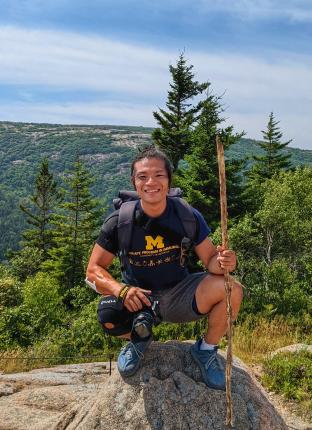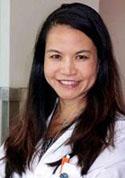Henry is a native of Asheville, North Carolina and completed his undergraduate studies in Biology and Public Policy with a concentration in health policy at the University of North Carolina. He studied a novel role of cilia in fetal alcohol spectrum disorder, the largest preventable cause of developmental disability, as an undergraduate. After graduating in 2017, he researched novel mRNA gene therapies for ciliary genetic defects at UNC in partnership with a private firm. After observing damaging immunogenicity from prototype treatments in knockout mice to restore the airway mucociliary escalator, the physical first line of respiratory immunity, he decided to pursue graduate work in immunology in 2019.
Biography
Research Interests
I study host responses in respiratory infections, the largest cause of death by infectious disease globally. As epitomized by COVID-19, these infections pose an ever-increasing risk of pandemics due to rising populations, increasing globalization, global health governance deficiencies, environmental degradation, and biodiversity loss which all increase disease transmission and zoonosis rates. The most recent estimated probability of a similar pandemic is about 2% in any given year and could increase threefold in the coming decades without major global policy interventions (Marani et al 2021, PNAS Vol. 118 No. 35).
My project currently centers around neutrophil heterogeneity in mouse models of coronavirus and influenza respiratory infections. Neutrophils comprise the vast majority of all white blood cells in humans; and, contrary to their classical characterization, neutrophils are not simply a swarm of suicidally specialized pathogen killers that serve as the vanguard of immunity. They are so much cooler than that! I hope to help define the poorly understood processes regulating neutrophils and learn how they can be biased towards heterogenous phenotypes – including antimicrobial, cytotoxic, immunogenic, immunosuppressive, inflammation-resolving, non-glycolytic/fatty acid oxidizing, reparative, angiogenic, etc. – and how this priming can be controlled to change the outcomes of infection.
Techniques Used
Flow cytometry, neutrophil isolation, respiratory infection mouse models, NETosis assay, reactive oxygen species assay, bactericidal assay, phagocytic assay, plaque assay, chemotaxis assay, RT-qPCR, ELISA, cell culture, histology, immunohistochemistry, fluorescent microscopy, intratracheal/ intranasal/ intraperitoneal/ subcutaneous/ retroorbital/ oral gavage murine deliveries
Awards
2021 Rackham Graduate Student Pre-Candidate Research Grant
2021 Excellence in Basic Science Award
2020 National Science Foundation Graduate Research Fellowship
2020 Research Training in Experimental Immunology T32 Training Grant
2019 Rackham Merit Fellowship
2017 Honors Carolina Laureate
2017 Bachelor of Science and Bachelor of Arts, with Highest Distinction
2015 Phi Beta Kappa - Alpha of North Carolina
2014 Carolina Southeast Asia Summer Program Award
2013 Carolina Summer Study Abroad Fellowship
Abstracts
Boschen, K.E., Gong, H., & Parnell, S.E. (2017) The Mns1 gene alters susceptibility to craniofacial defects following gastrulation-stage ethanol exposure in mice. Research Society on Alcoholism Annual Meeting; June 24-28 2017; Denver, CO. A119.
Ostrowski, L.E., Sears, P.R., Markovetz, M., Gong, H., Hill, D.B. (2018) Mucociliary transport in vitro: effect of mucin concentration, reducing agents, and DNA on rheological properties and transport rate. ATS International Conference; May 17-22 2019; Dallas, TX. A2156.
Sears, P.R., Gong, H., Markovetz, M.R., Bustamante-Marin, X., Superfine, R., Hill, D., Ostrowski, L.E. (2020) Induction of ciliary orientation in a model of mucociliary transport: effect of concentration, reduction, and DNA on transport. North American Cystic Fibrosis Conference; October 22-24 2020; Phoenix, AZ.
Hobbies and Extracurricular Activities
I enjoy physical activities like powerlifting, yoga, kayaking, climbing, trail running, and cycling year-round; STEM education outreach; trying/making new foods and drinks; and I spend almost every moment listening to music. My spirit immune cell is a neutrophil - I like to do just about everything and live fast!


